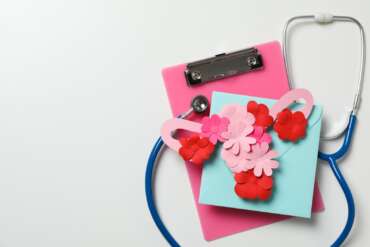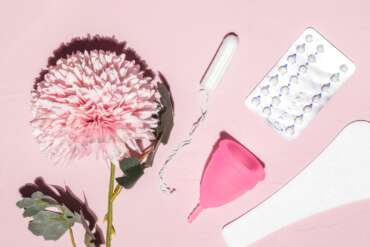
Menstrual health products are essential tools that support women in managing their periods safely and hygienically. As we look ahead, the future of menstrual health is increasingly shaped by eco-conscious innovations and sustainable practices-especially in cities like Chennai. These trends reflect a broader shift toward healthier bodies and a healthier planet.
1. Menstrual Health Products: What Are They?
In a nutshell, menstrual health products are things that absorb or collect menstrual flow. Typical kinds consist of:
> Sanitary pads are disposable, absorbent underwear sheets.
> Tampons: Vaginal insertion of cylindrical absorbers.
> Menstrual Cups: Reusable silicone or rubber cups used to draw blood.
Reusable Cloth Pads: pads made of fabric that can be washed and used again for a number of years.
2. What Qualifies as an Eco-Friendly Product?
Conventional menstrual products frequently contain plastic, synthetic fibers, and dangerous chemicals, which pollute the environment and end up in landfills. Eco-friendly menstrual health products, on the other hand, are made to reduce toxicity and waste:
> Clothes with integrated layers of absorbency are known as period underwear.
> Biodegradable and plastic-free disposable pads and tampons made of organic cotton.
> Menstrual cups and discs are reusable, long-lasting internal solutions.
In addition to cutting waste, these substitutes provide long-term cost savings and comfort without the use of chemicals.
3. Why Take Into Account Eco-Friendly Choices?
Making the switch to environmentally friendly menstruation products has several benefits:
> Environmental Impact: By replacing hundreds of single-use pads or tampons, a single menstrual cup can lessen the amount of waste that ends up in landfills.
> Long-Term Cost Savings: Over time, reusable items like cloth pads and menstrual cups pay for themselves.
> Benefits to Health: Products made from organic cotton are less likely to contain irritants or endocrine disruptors.
> Social Empowerment: Especially in underprivileged areas, promoting sustainable options promotes awareness and female dignity.
4. Chennai’s Role: Awareness and Local Eco-Initiatives
✅ A. Community-Based Organizations & Distribution Initiatives
Reusable cloth pads were given to rural women in Kanchipuram by United Way Chennai and the Iniya Udiayam Trust, assisting in lowering monthly costs by about ₹300 per person.
In Chennai, the Go Hygiene Foundation and Pinkishe Foundation provide menstrual health education along with eco pads and hygiene kits to underprivileged communities.
With a focus on sustainable practices and breaking cultural taboos, Upasana Society’s “PeriodCupCause” campaign has provided menstrual cups and held training sessions for more than fifty women in Chennai.
✅ B. Distribution and Infrastructure at the City Level
With the support of HLL Lifecare and Envee Solutions, the South Chennai MP made a historic step by starting a campaign to provide 1,500 menstrual cups to impoverished women in communities like Besant Nagar, Thiruvanmiyur, and Nandanam.
Recipients received training on proper use and care. Chennai Metro Rail and non-governmental organizations such as Geo India Foundation set up sanitary napkin vending machines at 38 stations; however, maintenance problems and vandalism still exist. These devices provide access to pads, but they also highlight the need for more robust environmentally friendly substitutes.
✅ C. Homemade Reusable Cloth Pads
To provide a low-cost, low-waste alternative that is appropriate for local environments, innovators in Tamil Nadu are teaching women how to make cloth pads using herbal ingredients like neem and aloe vera. According to timesofindia.indiatimes.com, this do-it-yourself method is both eco-friendly and empowering.
Auroville, Tamil Nadu-based Eco Femme is one of these; it manufactures GOTS-certified organic washable cloth pads. More than 1 million reusable cloth pads have been distributed as part of their “Pad for Pad” campaign, preventing more than 75 million disposable pads from ending up in landfills.
5. Innovation Highlight: What’s Up Next
🌟 Discs and Cups for Menstruation
> When properly maintained, menstrual cups made of medical-grade silicone-which is frequently FDA-approved-can last five to ten years.
> Discs provide an alternative for women who prefer shorter devices and fit differently, at the base of the cervix.
> Reusable cups lower health risks related to extended pad or tampon use and are economical and environmentally friendly.
🌟Biodegradable and Organic Items
> Despite having their headquarters in the UK, companies like Natracare sell certified organic tampons and pads made of cardboard or bioplastics that are free of plastic. Their products are made to cause the least amount of damage to the environment and are compostable. Wikipedia.
> Indian-made biodegradable pads, like Project Kannamma’s Aavaram, are reasonably priced and environmentally friendly because they are made from cotton and wood pulp.
🌟 Intelligent and Integrated Designs
> Period underwear, which can be worn on its own or as a backup, combines breathable fabric with absorbent materials.
> These days, innovations include leak-resistant technologies, improved fit, and antimicrobial layers.
> In order to monitor wellness, future designs might incorporate sensors and apps that track menstruation.
🌟 Localized Education & Manufacturing
> As demonstrated by Eco Femme and regional herbal-pad craftspeople, teaching women in Chennai and other cities to make their own cloth pads boosts the economy and produces sustainable goods (Wikipediatimesofindia.indiatimes.com).
> In order to provide safer and more environmentally friendly options, NGOs such as Humans For Humanity teach rural communities how to make biodegradable pads and menstrual literacy.

6. The Birthwave Clinic: Dr. Santoshi Nandigam’s Holistic Treatment
> Leading The Birthwave Clinic in Nungambakkam, Chennai, Dr. Santoshi Nandigam, MD (MBBS, DNB – Obst & Gynecology), is a prime example of a comprehensive approach to women’s wellness that incorporates sustainable products and menstrual health.
> The clinic offers patients lifestyle advice in addition to medical care, including advice on eco-friendly choices, menstrual hygiene, and awareness.
> Her approach is patient-centered, addressing underlying issues, talking about options like organic pads or reusable cups, and assisting women in coordinating menstrual care with their personal and environmental health objectives.
> From puberty to menopause, The Birthwave provides workshops and education on menstrual health, yoga, stress management, and nutrition.
7. Creating a Future: A Plan for Chennai Customers
Here is what future-ready menstrual health looks like if you’re in Chennai (or anywhere else):
Investigate Reusables First
> Consider using a menstrual cup or disc. Aside from learning curves, they are very cost-effective over time.
> Use period underwear or organic cloth pads, particularly on days with high flow or for convenience.
Select Certified Items
> Choose GOTS-certified or organic cotton brands that use less plastic.
> For eco-friendly solutions based on Indian materials, check out regional innovators like Eco Femme or Aavaram Pads.
✅ Inform & Clean Disposal
> Make sure the disposables you’re using are biodegradable and dispose of them properly. To keep sanitary waste out of landfills, Chennai is implementing pilot programs for its segregation (thebirthwave.com).
> Get involved with community organizations or NGOs that are promoting menstrual literacy; many in Chennai now host awareness campaigns.
Seek Advice from an Expert
> Consult with gynecologists who integrate environmentally friendly menstrual education into their clinical practice, such as Dr. Santoshi Nandigam.
> Counseling on menstrual hygiene, menstruation-related wellness, and sustainable choices is available at clinics such as The Birthwave.
8. Benefits of Innovative & Eco-Friendly Menstrual Solutions
> Decreased Waste Footprint: Several disposables are kept out of landfills by using one eco-friendly cup or cloth pad.
> Lower Lifetime Cost: Long-term costs are low, despite a higher initial cost.
> Better Health: Less synthetic fiber, fewer chemicals, and a lower chance of allergies or toxic shock.
> Empowerment & Awareness: By using and advocating for these products, menstruation is less stigmatized and health literacy is increased.
9. Difficulties & Overcoming Cultural Resistance:
> Internal products, such as cups, may cause discomfort or unfamiliarity to certain users. Peer support and proper education aid in overcoming this.
> Access Problems: Eco products are not readily available in every location. In Chennai and the surrounding areas, local pads created by NGOs aid in closing this gap.
> Hygiene & Maintenance: Reusable items need to be cleaned. This is doable with the right direction and sanitary facilities.
> Affordability: Although reusable solutions eventually save money, initial expenditures could be a deterrent. They are made accessible through NGO initiatives or subsidy programs.
10. An Example Plan: Making the Switch to Sustainable Menstrual Health
Week 1: Give a menstrual cup or disc a try. Continue your comfort and cleaning routine.
Week 2: On heavier days, start using period underwear or organic cotton pads.
Week 3: Start taking part in reusable pad or menstrual literacy workshops in your community.
Week 4: For individualized advice on menstrual health and sustainability, speak with a healthcare professional (such as The Birthwave).
From the second month on, establish a maintenance schedule (laundry or sterilization), monitor flow, and modify product usage as necessary.
In conclusion, menstrual health has a bright, inclusive, and sustainable future.
Eco-friendly innovations, user empowerment, and community-driven education are key to the future of menstrual health. Initiatives like the distribution of reusable pads, training on menstrual cups, and eco literacy programs are revolutionizing the situation in Chennai and beyond.
This change is largely due to healthcare providers like Dr. Santoshi Nandigam’s The Birthwave Clinic, which provides information, medical advice, and support regarding sustainable menstrual care. Women can support both their health and the environment by using menstrual products that are organic, reusable, or biodegradable.
Menstrual health should be about embracing a future of sustainability, wellness, and dignity for both ourselves and the environment, not just about controlling a cycle.

